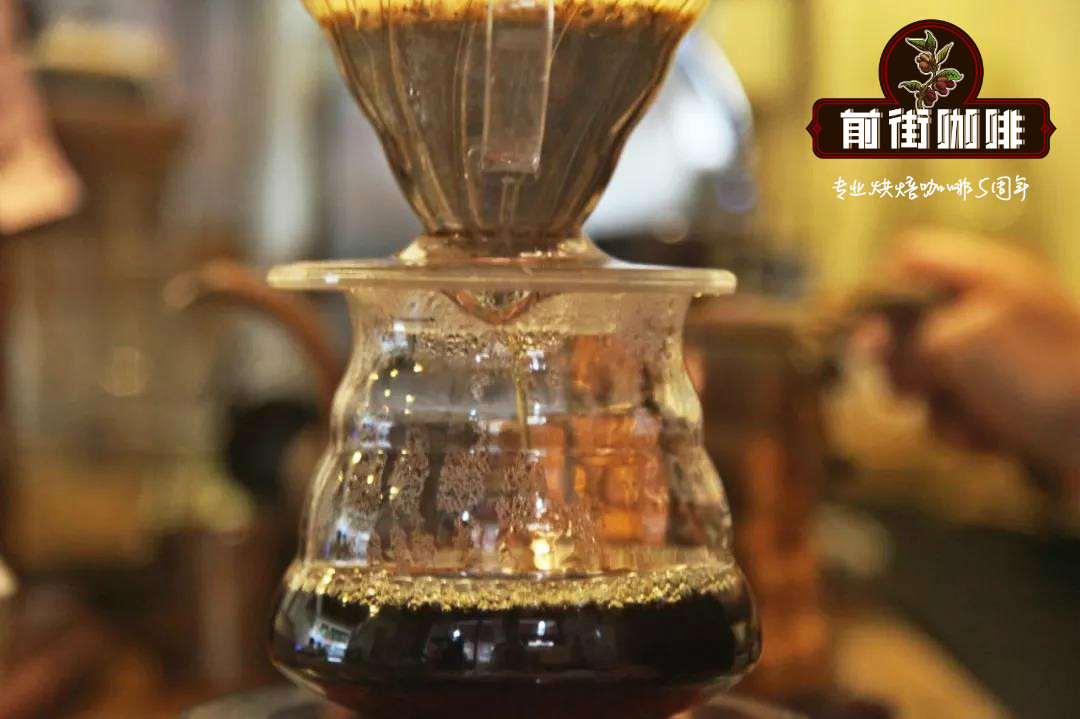What is the bitterness in coffee? Is it necessarily bad if there is suffering? How does the bitterness in coffee come from?

For information, please pay attention to Cafe Workshop (Weixin Official Accounts cafe_style)
Bitterness has always been an unpleasant term in fine coffee. Good coffee should be sweet and delicious, taste well balanced, perhaps with some acid, and make coffee taste good without adding sugar. But what makes coffee bitter? Are these bitters really that bad? Let's see.
Is bitterness bad?
In fact, bitter taste is not so bad, in fact, if coffee does not have bitter taste, it may taste too sour or too sweet, the key is "balance". A bit of bitterness can bring out richer and more diverse flavor layers, provided that the bitterness is not too heavy.
Interestingly, however, for most of us, we can accept bitter coffee more than sour coffee.
However, coffee that is too bitter is really bad, so let's look at what bitterness really is and how to avoid bitterness when brewing.
What is bitter?
Everyone has the experience of eating bitter taste, but there are often cases where you eat bitter taste, but others do not eat bitter taste. This is the sensory cognition of taste, which means that the sensory perception varies from person to person.
It's also important to note that taste isn't just about creating bitter sensations. Flavor is a word that refers to the aggregation of many things, including smell, mood, music and even altitude. But that is not the subject of this article, so let us now focus on taste and put the bitterness of coffee into scientific perspective.
The Science of Bitterness
It used to be thought that the tongue had a different distribution of taste receptors, such as sweet, salty, sour and bitter. But now we all know that these flavors can be felt anywhere on the tongue.
Because our tongue's sensory cells contain a lot of proteins, according to the Institute for Quality and Efficiency of Healthcare, about 35 proteins react with compounds in food to produce bitter sensations.
This means that bitter taste comes from substances in coffee called phenolic compounds, the most common of which is also called chlorogenic acid, which we will discuss later. This substance accounts for about 8% of Arabica green coffee beans and has a significant impact on the taste perception of coffee.
There are many kinds of chlorogenic acid, but we need to know only the two most special ones. Chlorogenic acid: the most common compound in raw beans, di-CGA, reflects the main substance of coffee bitterness.
Although coffee bitterness mostly comes from quinine acid, some studies have shown that caffeine can also affect bitterness, but caffeine's impact on bitterness is only minor at best.
Important Notice :
前街咖啡 FrontStreet Coffee has moved to new addredd:
FrontStreet Coffee Address: 315,Donghua East Road,GuangZhou
Tel:020 38364473
- Prev

Many people like hot coffee, but never reheat it when it's cold!
Information Please pay attention to coffee workshop (Weixin Official Accounts cafe_style) Many people like to drink hot coffee, and it is fresh hot coffee, because the aroma of coffee is strongest when it is high temperature. Although good coffee still tastes good when it is cold, many people are still used to drinking coffee at high temperatures. If they don't have time to drink it when it is hot, they may take it to keep warm or even reheat it.
- Next

The basics of hand-brewing coffee what are the skills of hand-brewing coffee?
Professional coffee knowledge exchange more coffee bean information Please pay attention to the coffee workshop (Wechat official account cafe_style) do not fail hand brewing coffee guidelines the basic knowledge of hand brewing coffee the world of coffee brewing skills is fascinating, regardless of the aroma, coffee beans, origin, hand brewing process, is a knowledge. Many coffee drinkers must be infatuated with hand-made coffee.
Related
- Beginners will see the "Coffee pull flower" guide!
- What is the difference between ice blog purified milk and ordinary milk coffee?
- Why is the Philippines the largest producer of crops in Liberia?
- For coffee extraction, should the fine powder be retained?
- How does extracted espresso fill pressed powder? How much strength does it take to press the powder?
- How to make jasmine cold extract coffee? Is the jasmine + latte good?
- Will this little toy really make the coffee taste better? How does Lily Drip affect coffee extraction?
- Will the action of slapping the filter cup also affect coffee extraction?
- What's the difference between powder-to-water ratio and powder-to-liquid ratio?
- What is the Ethiopian local species? What does it have to do with Heirloom native species?

